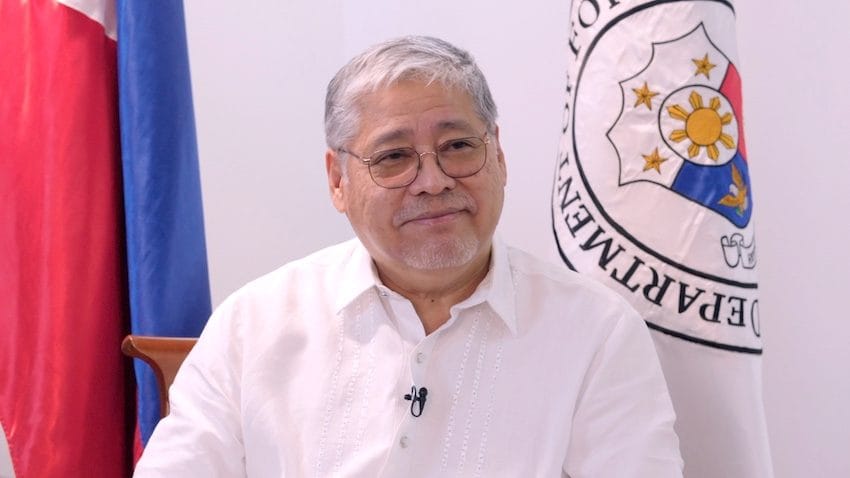Manalo: Philippine actions about national security, not US-China rivalry

Source: Rappler
Author: Bea Cupin
MANILA, Philippines - Amid an onslaught of revelations, claims, truths, and half-truths from Beijing on the West Philippine Sea, Philippine Foreign Secretary Enrique Manalo wants to make one thing clear: Philippine actions in security, diplomatic, or economic ties are "for our own national purposes or national security" and not to play into superpower competition.
"We just answer it back. And we're ready to answer it back also through our own releases. One common theme is that we hope China realizes that many of the actions we are taking are being taken for our own national purposes or national security and not in the context, let's say, of a US-China competition or rivalry. We're doing it for our own needs," Manalo said in a sit-down interview that aired Friday, May 3, for Rappler's World View with Marites Vitug.
Manalo was asked if he was concerned about China disinformation or misinformation - whether from official or unofficial sources - as the relationship between Manila and Beijing turns even more tense.
By "actions," Manalo was referring to a wide range of actions that China has reacted strongly to, from the Marcos administration's efforts to assert the country's sovereign rights and sovereignty claims in the West Philippine Sea to the expansion of its security ties and cooperation with different countries in the region. In early April 2024, President Ferdinand Marcos Jr. met with United States President Joe Biden and Japanese Prime Minister Kishida Fumio for the leaders' first-ever trilateral summit in Washington DC.
In early May, the defense chiefs of the United States, Philippines, Japan, and Australia met in Hawaii a month after their navies sailed the West Philippine Sea together.
Manalo himself has said US-Philippine ties are on "hyperdrive."
Beijing has not reacted warmly at all to these developments. It claims most of the South China Sea, including parts within the Philippines' exclusive economic zone (EEZ) or the West Philippine Sea. China has also insisted that a 2016 arbitral ruling, which validated the Philippines' EEZ, is invalid.
Under the previous Duterte administration, the Philippines mostly played nice, even putting aside its entitlements in the West Philippine Sea. Things have taken a 180-degree turn under Marcos.
China has viewed this as a "reneging" of deals, even if those agreements under Duterte were never actually formalized. Beijing and its embassy in Manila have referred to a supposed deal concerning Ayungin Shoal as a "gentleman's agreement" and an apparent deal on Panatag Shoal as "temporary special arrangements by the Chinese side."
Beijing has also repeatedly accused the US of being behind the Philippines' decisions, a concept Marcos himself has rejected many times in the past.
On these supposed deals, the veteran diplomat said: "It could be to distract us; it was China that mentioned the deal. Personally, I'm not aware of any agreement or deal. It's very difficult, actually, to comment on what has been said. As I said, this was originally raised by China. We didn't mention any, and it didn't come from a Filipino source or official who said we have an agreement with them, so I don't know what the motives are, but certainly, I'm not aware of any agreement."
As China amps up its information operations - either through official releases from its foreign ministry and embassy or through disclosures made by officials on background - Manalo seems unperturbed.
"It means more work for us. We're trying to bring the truth out there. We have to respond if we feel there's a need to respond, and many times, there is, just to correct the situation, the interpretation, or the information. We don't really have to issue anything. We had the video camera, taking it in real-time, so that speaks louder than words. So, there's really no need for us to sometimes even issue a press release. It's right there, but of course, we do so when China counters that, it's difficult if you look at the video to see," he said, referring to videos and stills of China's aggressive actions in the West Philippine Sea.
"Anyway, it's their right to issue that. We will answer it back if we feel we have to, and many times, we have to," he added.
